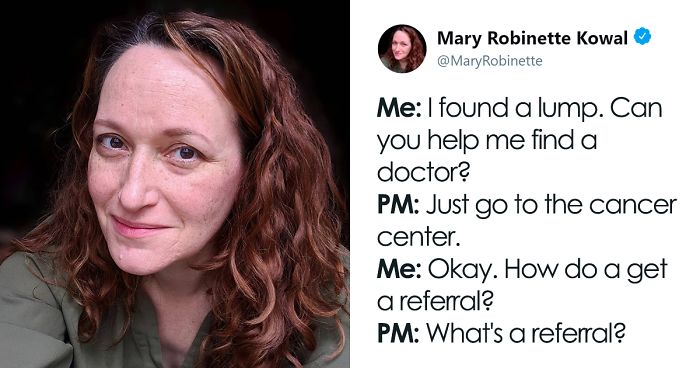
American Woman Finds A Lump While In Iceland, Shares How Awesome Their Healthcare Is Compared To The US
There are plenty of horror stories about the U.S. healthcare system; for a supposedly advanced nation, the inability to provide basic, affordable care to ordinary Americans is baffling to Europeans, especially.
Sometimes U.S. citizens need to travel abroad to see exactly what they are missing; a visit to the emergency room is traumatic enough, it seems ridiculously unfair to saddle someone with years of debt too.
Image credits: MaryRobinette
Back in 2006, Nashville, Tennessee-based author Mary Robinette Kowal was in Iceland working as a puppeteer on a children’s television show called Lazytown. One day, while doing a regular check, she found a lump. “This wasn’t the first time I’d found a lump, but there’s always a sense of dread, Mary Robinette told Bored Panda. “Even though I knew it was probably nothing, because there’s no history of breast cancer in my family, there’s still a chance that it is going to be a problem.”
“I was dreading the process of having to navigate a healthcare system in a foreign language. I assumed that it would be as complicated as it was here, with the added challenge of not speaking much Icelandic.”
So began Mary Robinette’s (amazingly short) journey through the Icelandic healthcare system. She couldn’t speak highly enough of the professional, efficient and astonishingly cheap service, as well as the country as a whole. “I love it and would move back in a heartbeat,” she told us. “The landscape is stunningly gorgeous!”
Image credits: MaryRobinette
Image credits: MaryRobinette
Image credits: MaryRobinette
Image credits: MaryRobinette
Image credits: MaryRobinette
Image credits: MaryRobinette
Image credits: MaryRobinette
Image credits: MaryRobinette
Image credits: MaryRobinette
Image credits: MaryRobinette
The post sparked a discussion about the merits of various healthcare systems around the world, with people sharing their own eye-opening experiences.
Image credits: Sherrishaw14
Image credits: MaryRobinette
Image credits: KellyLGregory
Image credits: KellyLGregory
Image credits: KellyLGregory
Image credits: MaryRobinette
Image credits: TheThirdFlash
Image credits: TheThirdFlash
Image credits: TheThirdFlash
Image credits: kevinpoehlmann
Image credits: Lilitree
Image credits: whimsyintrovert
Image credits: Lilitree
Image credits: RussInCheshire
Image credits: DanInADL
Expanding on her thoughts about the situation at home, Mary Robinette believes that more exposure to other nation’s experiences could benefit many American’s attitudes toward their own healthcare. “I think that we tend to see the environment that we’re in as normal, so most Americans have no idea that there are other ways of doing things,” she said.
“My normal experience, here, in the US, is one of frustration every time I interact with the insurance industry. I wrote that Twitter thread as I was in the midst of arguing with health insurance for a vital medication for a family member. In fact, I’m still fighting with them. It’s a medication that they covered last month and this month they aren’t. The contrast is frustrating.”
“At every turn, it’s clear that choices are being made from the accounting office, not for the patient’s best interests. I’ve told this story over the years to other Americans and they all have the same complete shock at how easy the experience was.”
What do you think? What are your experiences with healthcare in your country, and in countries around the world? Share your stories in the comments!
I'm just completely bewildered by the american health care industry/system. I can't fathom it and I can't understand why people aren't even angrier about it. Where I'm from people are complaining about waiting times and some extra costs that aren't covered by the insurance company. Like when you want the nicer material for your filling at the dentist's. I think if any party seriously advocated for abolishing the public health care system and took steps to ensuring this goal, there would be mayhem. Probably burning cars on the streets, may day style. And the party would very likely get wiped out in the next elections.
Revolutions have typically started with collectively immediate crises. We're not up in arms because our bellies are full and rooves are over our heads, pacified by the entertainment industry. We are indoctrinated via various mediums that all this is the norm, and that being willing to die for a cause is maladaptive, much less willingness to do it together. Yes, pockets of protestors exist but nowhere near on the scale needed.
Load More Replies...I feel so sorry for anyone having to seek medical treatment in the US. I just cannot comprehend how a civilized nation allows people to face financial ruin because they are sick. You are always just an accident away from losing everything, on top of your health. I often hear that what works in a smaller country wouldn't scale to the big US, but that's just bull. Just imagine the benefits in productivity when everyone could treat their issues in the early stages - instead of letting it develop until it is much worse. I truly hope there will be change one day (and while we're at it, better rights for employees would be neat, too!). Worker rights and healthcare are the two major reasons why I crossed off the US from my list of potential countries to work in, which is a shame as I really loved the people when I visited and could have imagined going there for a while.
I have heard that "wouldn't work in the US" argument on many things over the years. It makes no sense at all. If it couldn't work on a nationwide scale, perhaps it should be handled at the state level. Norway has 5 million people, Wisconsin has 5 million people. Surely we can afford the same quality of care.
Load More Replies...As long as I have discussions on various forums with Americans that say healthcare isn't a human right and they're not going to pay for someone else's hospital bills, America will be stuck with a very expensive and very inefficient healtcare system that's based on greed from the pharmaceutical industry and the hospitals.
I'm willing to bet any money that most of these people will claim to be Christian. WWJD.
Load More Replies...I'm just completely bewildered by the american health care industry/system. I can't fathom it and I can't understand why people aren't even angrier about it. Where I'm from people are complaining about waiting times and some extra costs that aren't covered by the insurance company. Like when you want the nicer material for your filling at the dentist's. I think if any party seriously advocated for abolishing the public health care system and took steps to ensuring this goal, there would be mayhem. Probably burning cars on the streets, may day style. And the party would very likely get wiped out in the next elections.
Revolutions have typically started with collectively immediate crises. We're not up in arms because our bellies are full and rooves are over our heads, pacified by the entertainment industry. We are indoctrinated via various mediums that all this is the norm, and that being willing to die for a cause is maladaptive, much less willingness to do it together. Yes, pockets of protestors exist but nowhere near on the scale needed.
Load More Replies...I feel so sorry for anyone having to seek medical treatment in the US. I just cannot comprehend how a civilized nation allows people to face financial ruin because they are sick. You are always just an accident away from losing everything, on top of your health. I often hear that what works in a smaller country wouldn't scale to the big US, but that's just bull. Just imagine the benefits in productivity when everyone could treat their issues in the early stages - instead of letting it develop until it is much worse. I truly hope there will be change one day (and while we're at it, better rights for employees would be neat, too!). Worker rights and healthcare are the two major reasons why I crossed off the US from my list of potential countries to work in, which is a shame as I really loved the people when I visited and could have imagined going there for a while.
I have heard that "wouldn't work in the US" argument on many things over the years. It makes no sense at all. If it couldn't work on a nationwide scale, perhaps it should be handled at the state level. Norway has 5 million people, Wisconsin has 5 million people. Surely we can afford the same quality of care.
Load More Replies...As long as I have discussions on various forums with Americans that say healthcare isn't a human right and they're not going to pay for someone else's hospital bills, America will be stuck with a very expensive and very inefficient healtcare system that's based on greed from the pharmaceutical industry and the hospitals.
I'm willing to bet any money that most of these people will claim to be Christian. WWJD.
Load More Replies...
 Dark Mode
Dark Mode 

 No fees, cancel anytime
No fees, cancel anytime 


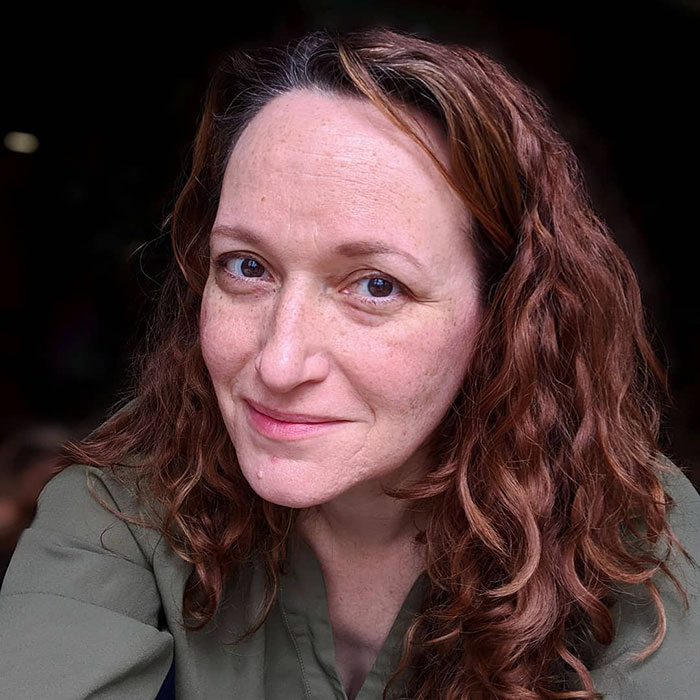
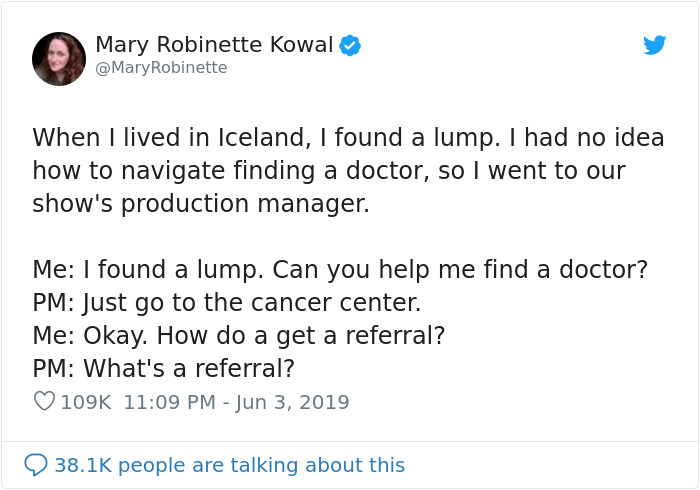
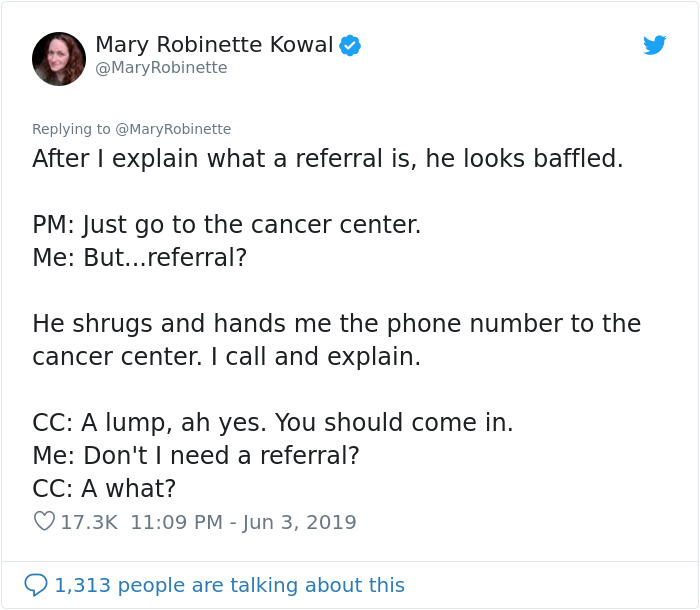
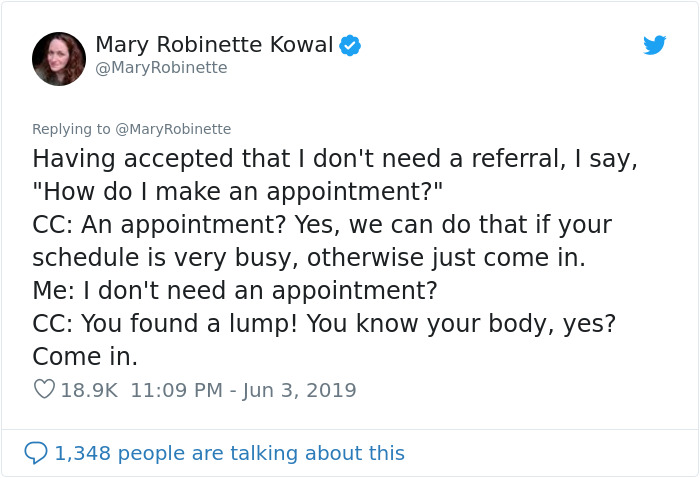
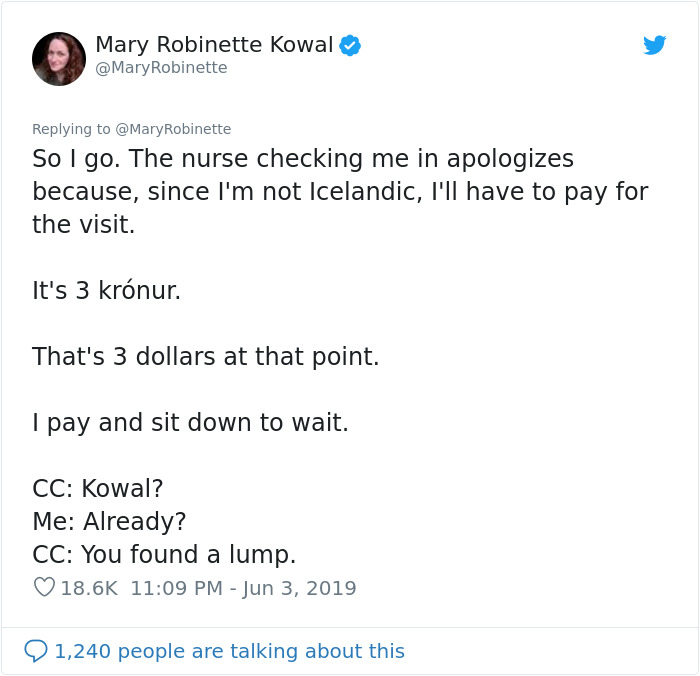
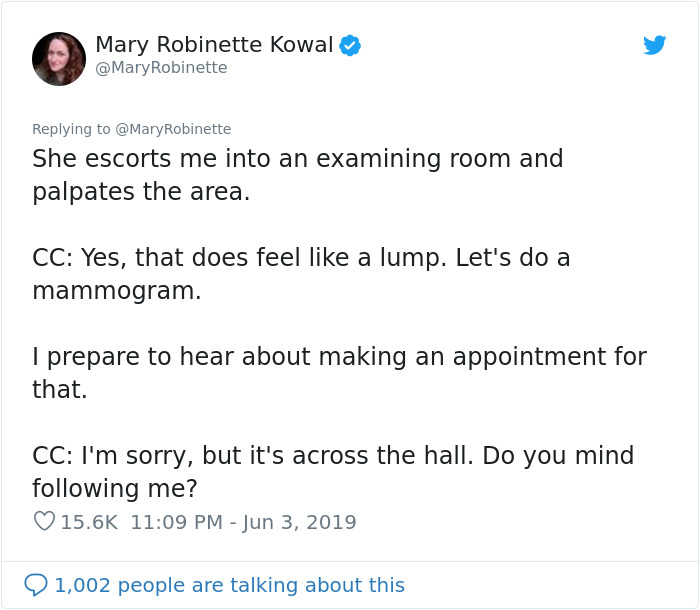
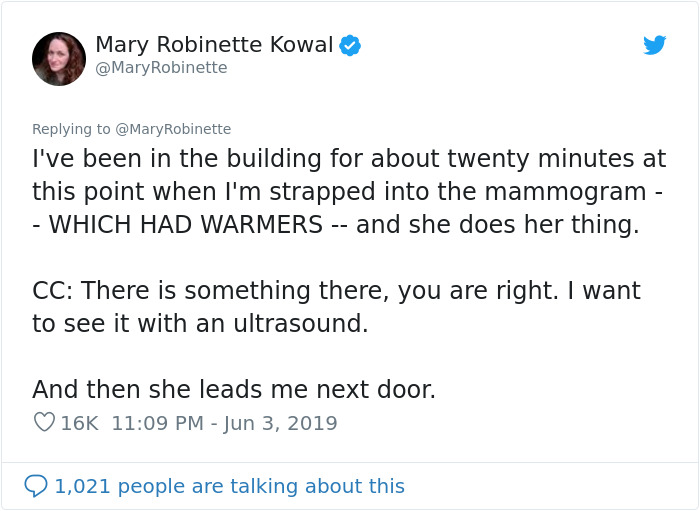
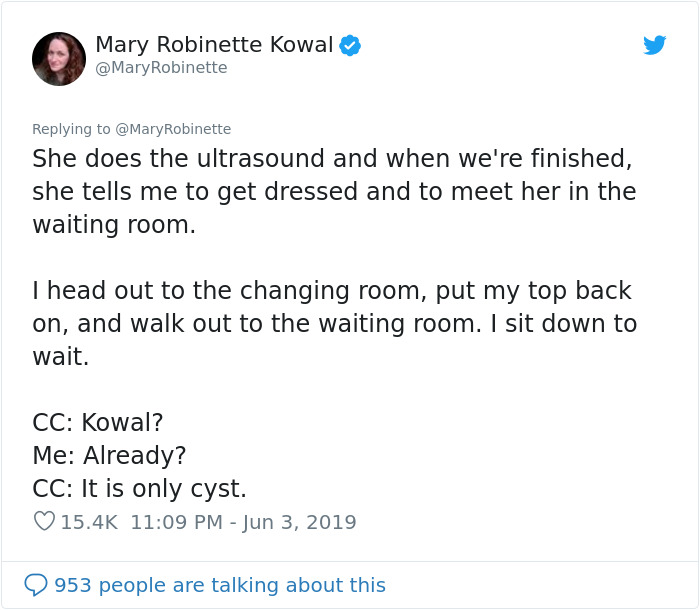
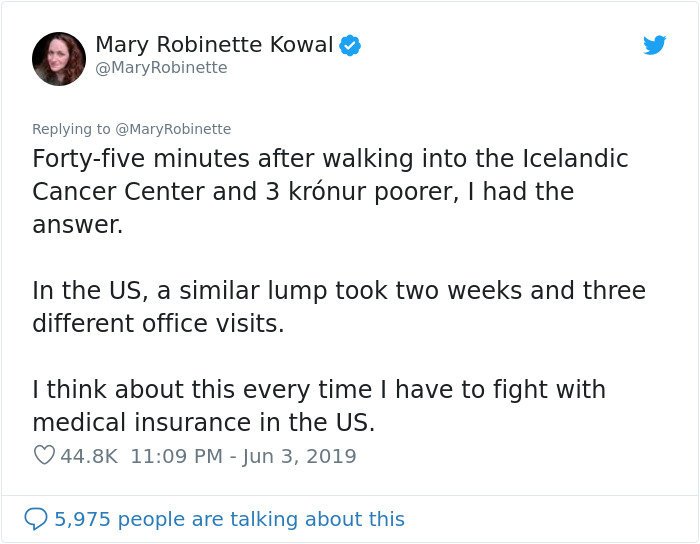
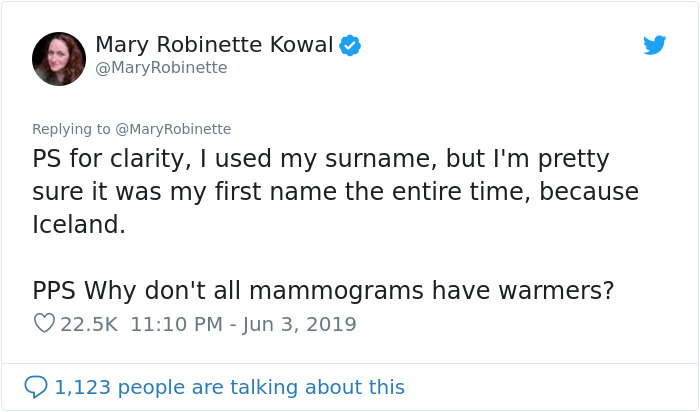
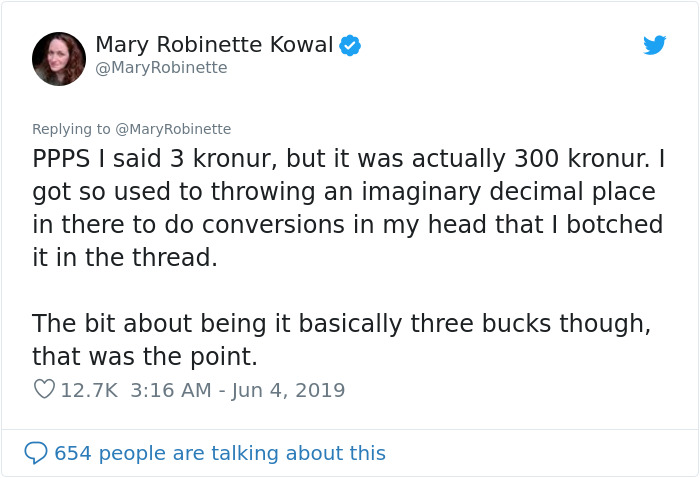
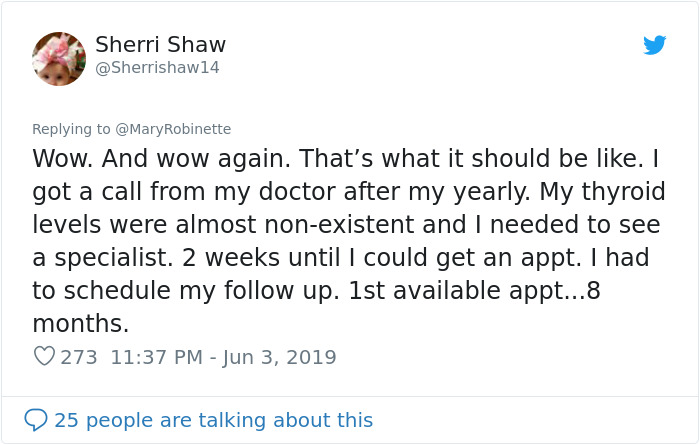
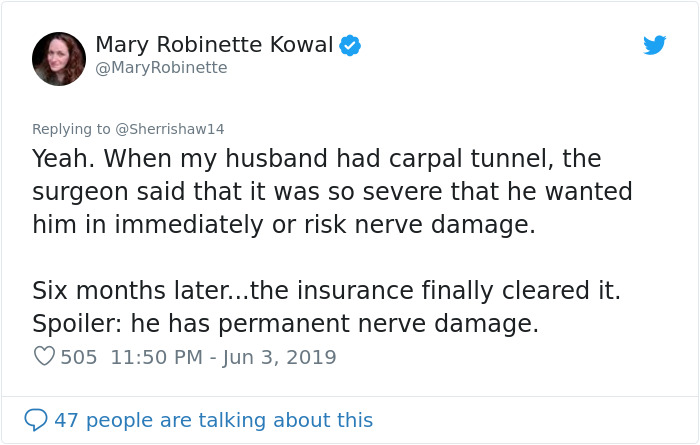
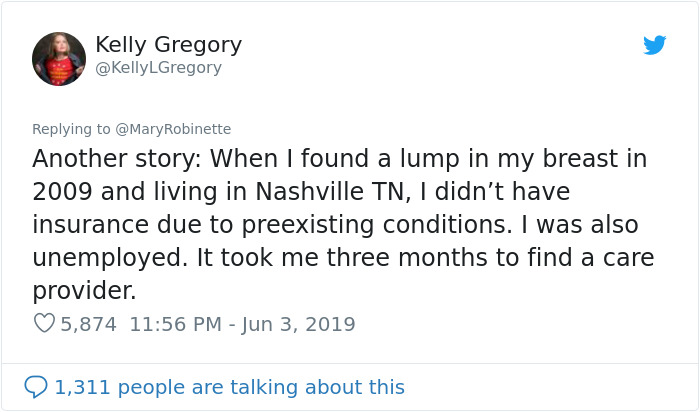
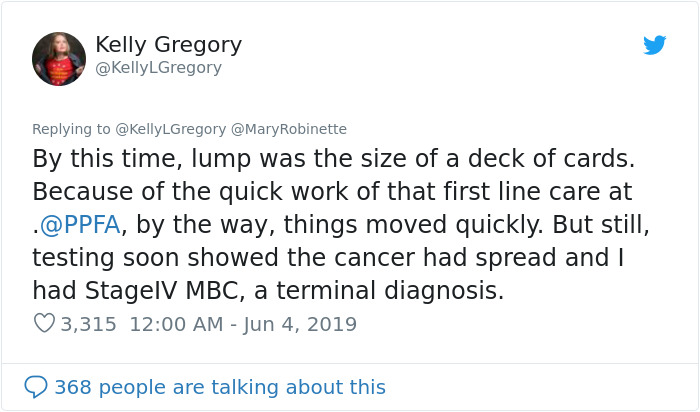
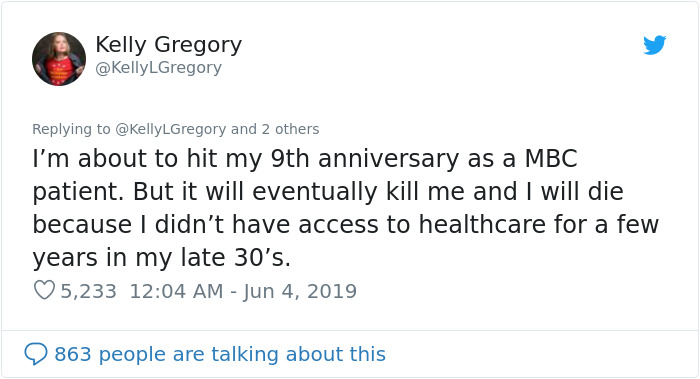
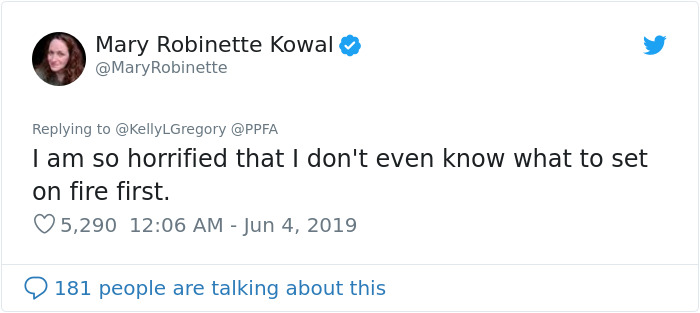
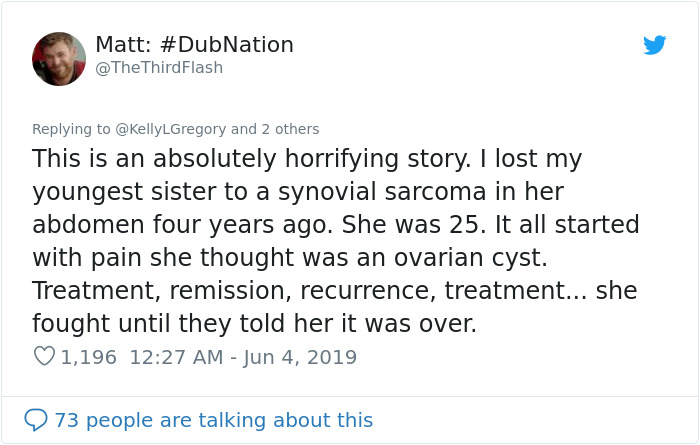
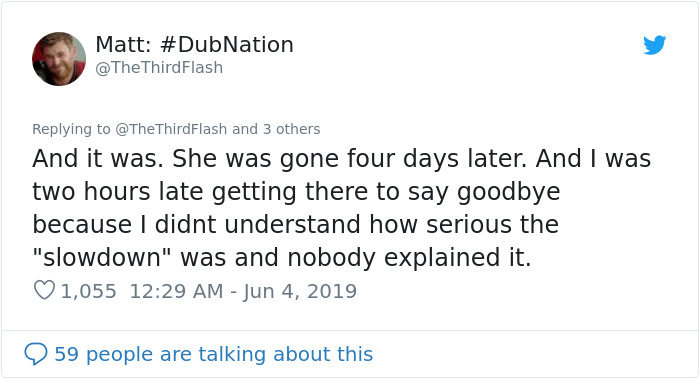
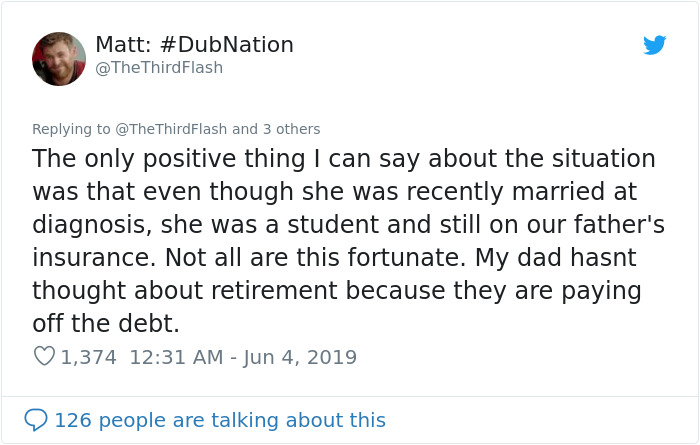
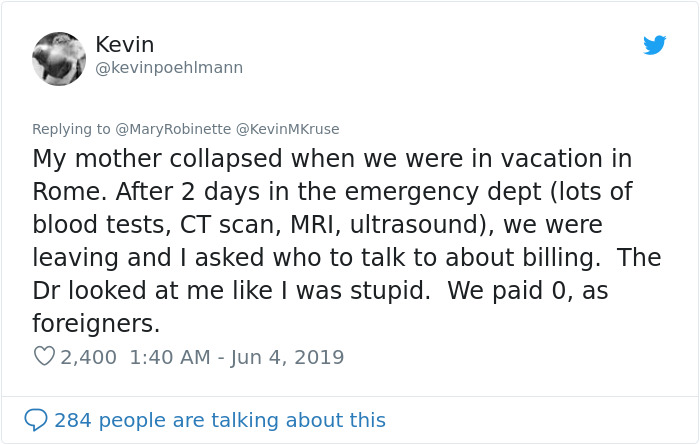
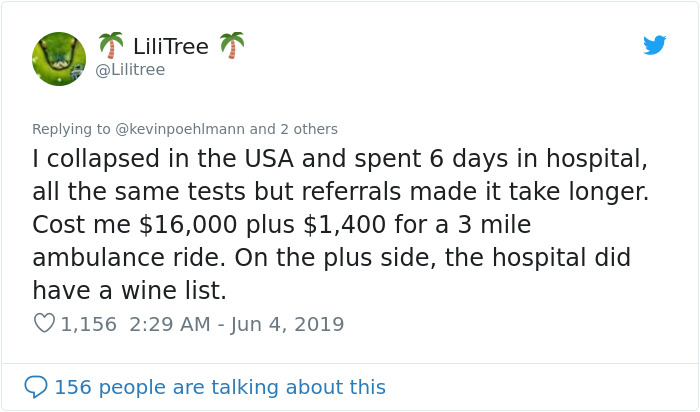
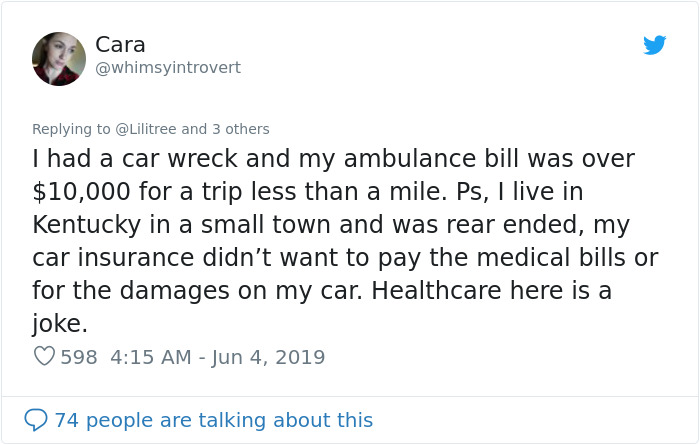
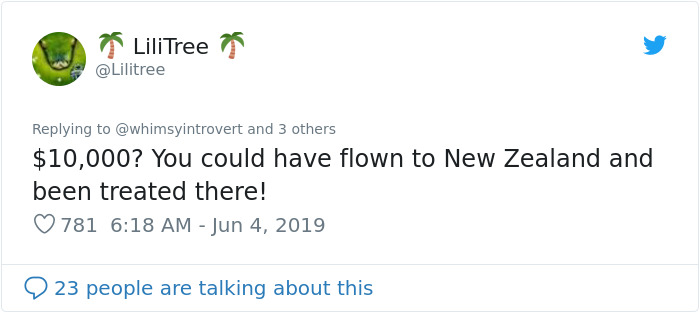
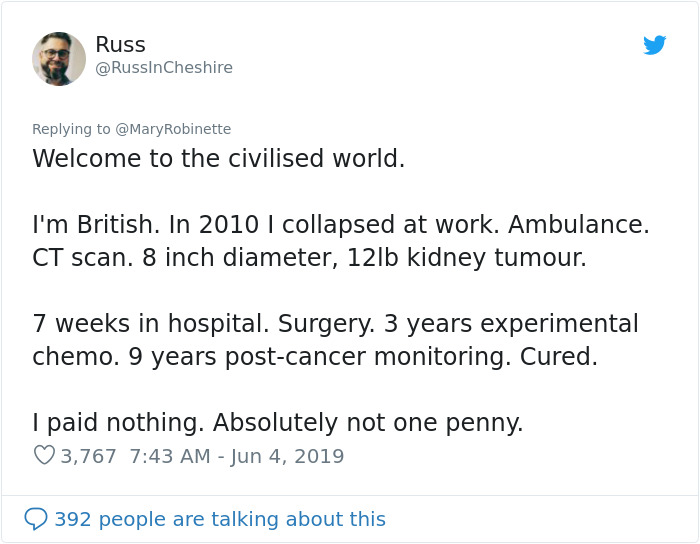













































385
338